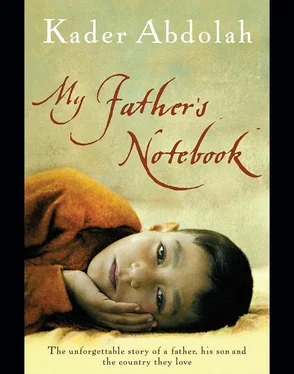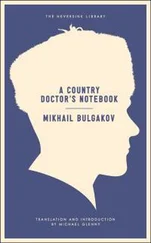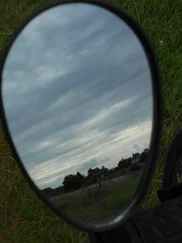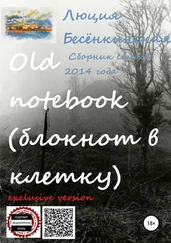I look out my window and I see the wolf running through the Dutch polder.
Let it run, let it go, let the wolf lose its way on this new ground, so it will never be able to find its way back to Tina.
It’s not the schools and buses
that have cast their spell on Akbar,
but something else.

I’m sitting in my attic again, but it’s hot, almost too hot to work. I read … no, that’s not really the right word … I run my pencil along the words, the phrases, in my father’s notebook, then feed them — or, rather, whatever fragments of text I can understand — into my computer. It’s not an easy job. I’m forced to base my story on the frequently indecipherable and incomprehensible thoughts of another person. Usually I keep working until a headache forces me to stop.
The attic is my office. I sit up here nearly all day. My daughter goes to school and my wife works part-time in Lelystad. On her off days I go to my classes in Dutch literature at the University of Utrecht.
I get headaches because I don’t know how to proceed with the story. A couple of times I’ve thought about quitting, but in the end I always go on.
I hear children playing in the schoolyard. They’re giggling and shouting, “Stop, stop!” I go over to the window and see the teacher spraying the kids with a hose. They grab the hose and turn it on her, until she’s soaking wet. She runs, laughs and takes off her shoes. The kids chase after her. She runs, laughs and takes off her wet blouse.
It’s hot. Everyone’s sitting in the shade of an umbrella or under a tree. Trailers are parked up and down the street, since everyone has just got back from their holidays.
I didn’t go on holiday this year, though my wife and daughter spent a few weeks in Germany with friends. I chose to spend my time working on the book. I need to find the right form for the story before the autumn semester begins.
I go outside and do something no one else is doing in this heat: I run a few laps. To hell with the computer and Aga Akbar’s notebook.
I run to get away from the story, but, as it turns out, I meet it head-on. I run down a path that used to be the bottom of the sea, then climb to the top of the dyke. Off in the distance are becalmed sailboats. I run to the end of the dyke, with beads of sweat dripping from my forehead. My headache has finally disappeared. I know how the story should continue.
I sit on the couch and watch the news. Prince Claus, the husband of the Dutch queen, was giving a speech at an award ceremony, when he suddenly took off his tie, urged men to liberate themselves from “the snake around their necks” and tossed it into the air. The camera shows the tie in slow motion, sailing up in a high arc, then fluttering gently to the floor.
Prince Claus is right — ties are a thing of the past. You can see it in clothing stores. Men’s ties are always on sale — first 50 per cent off, then 75 per cent off, and finally marked down so much that you can buy a good green silk tie for only a guilder.
A few months before the student association’s party at the university, I bought myself a tie. On the big night, I put it on and went to the party. One second after I entered the room, I put my hand over the knot and headed for the gents’. Everyone was dressed in jeans and T-shirts. I was the only one in a suit and tie.
It was my first time to wear a tie as an adult, but the second time in my life to furtively take one off and stuff it in my pocket. The earlier occasion had been in my childhood, soon after we moved to the city.
One evening my father came home with two ties: a grassy green one for me and a bright red one for himself.
First he knotted mine, then he went over to the mirror to tie his own.
“Why do we have to wear these ties?” I signed.
“I want to take you into town.”
“Why with a tie?”
“All the men in town wear a tie,” he signed back.
Tina wasn’t home. She and my sisters were visiting a woman who’d recently moved to the city. Clearly, my father didn’t want Tina to know about the ties. That wouldn’t be a problem — from the day I was born, my father had been teaching me not to divulge his secrets.
We walked to the heart of the city, to a street I’d never heard of. Men were strolling around a square, lit by multicoloured electric lights. There were a few women, too, though none wearing a chador. Everything was different — the people, the cars, the newspaper boys shouting, “The latest news! Read all about it!”
A couple of men with a record player were selling records. The magical voice of a Persian singer rang out over the square.
Whose voice did I hear that evening? What song were the record salesmen playing? I don’t remember the lyrics and there aren’t any Iranians in my area who might know. So I close my eyes and open my ears. No, I can’t hear the words, my memory has erased the lyrics, but I do hear an old melody: baradam, baradam, baradam , which seems to go with the following song:
Be rahi didam barg-e khazan
Oftadeh ze bidad-e zaman.
Ay barg-e payizi,
Az man to chera be gerizi?
In my travels I saw a falling leaf,
Tossed about on the winds of time.
Tell me, autumn leaf,
Why are you fleeing from me?
There were men selling ice-cream cones and walnuts, and there were men wearing ties. Most of them walked around with a newspaper or stopped beneath a lamppost to read. My dear father, who couldn’t read a word, suddenly pulled a rumpled newspaper out from under his suit, tucked it under his right arm and started strolling around the square like all the other men. I followed him, curious as to what he would do next, but he didn’t do anything special. He walked around for a while, then stopped beside a lamppost, unfolded his newspaper, held it up to the light and pretended to read. I thought he’d gone mad again. Kazem Khan was right: my father was crazy, my father was a fool.
After a while he tucked the newspaper back under his arm and continued his stroll.
How could I have known that my father was head over heels in love?
If I’d been in his place, I think I’d have fallen for one of those women, too.
The women in the square were not at all like the women we were used to. I’d never seen women do anything but work. Women wove carpets and cooked and prayed; women had children and cried and got sick and had a wolf inside. Now I saw women prancing around in high heels.
At a certain moment a young woman wearing a hat walked into the square from a side street. My father’s eyes lit up. He walked over to her, gestured, then pointed at me with his newspaper: “My son. He can talk, he can hear, he can even read a newspaper.”
“What a clever boy!” the young woman exclaimed and leaned closer. “What’s your name?”
“Ishmael,” I said, instantly on my guard.
Did my father actually know what love was? Was he aware that he was “in love”? I mean, was he capable of knowing that he’d entered the domain of love? Would he be able to explain his longing? His desire to be with her, to hold her hand, to smell her hair, to possess her?
Unless you’ve read about it, heard about it, or talked about it, you have no way of knowing what’s happening to you.
An old Persian classic describes the travels of a man named Hodjah Nasreddin. To understand the meaning of life, he travels through the world on foot. At the gate to Hamadan, he sees a crowd — men, women, children, camels, donkeys, horses, goats, chickens — all racing after a young man. The young man dances, weeps, mutters, flings himself to the ground, gets back up again, weeps some more, laughs, runs and pours a handful of dirt over his head.
Читать дальше













